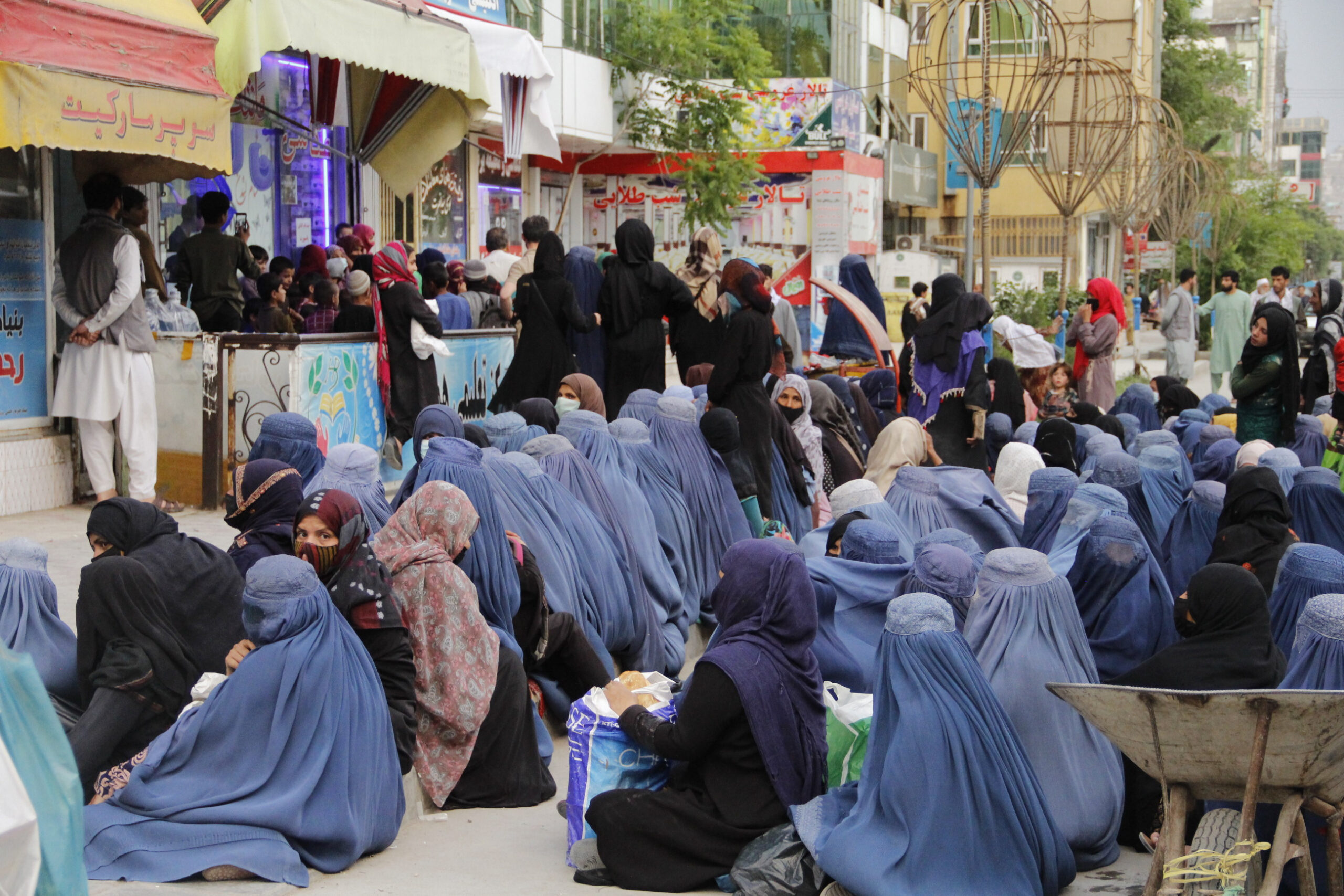
Three years after the Taliban took control of Afghanistan, the hopes that their rule might be more moderate than their previous regime have all but vanished. The draconian laws they have imposed, particularly on women, have intensified, erasing nearly all aspects of female public life. With the latest decrees, Afghan women are prohibited from raising their voices in public, reciting the Quran outside of private spaces, and even looking at men who are not their husbands or close relatives. These measures are not just an attack on women’s freedoms—they are part of a broader strategy to render women invisible in Afghan society.
Under the guise of enforcing a strict interpretation of Islamic values, the Taliban have now codified rules that were previously enforced more loosely. In urban centers like Kabul, where women once enjoyed relative freedoms even under Taliban control, there has been a marked escalation in the enforcement of these restrictions. The Taliban’s morality police, under the Ministry for Propagation of Virtue and Prevention of Vice, have gained unprecedented power. Reports of these white-robed officers roaming Kabul’s bus stops, shopping centers, and public squares, searching for violations of the dress code or punishing women for laughing in public, reflect a grim shift toward deeper repression.
These new laws codify some of the Taliban’s most extreme practices, making it clear that any hope for a more lenient government has been lost. “Three weeks ago, I was still hopeful that the Taliban may change and remove the restrictions on girls’ education,” said Meena, a young woman in her 20s who runs secret classes for teenage girls. “But once they published their Vice and Virtue law, I lost all hope.” Meena, like many others, continues to resist in whatever way she can, but the odds are stacked against her. The Taliban’s relentless control over women’s lives extends beyond education—it is a systematic effort to suppress and erase their identities.
The law banning girls from education beyond sixth grade, which many initially hoped would be temporary, is now firmly entrenched. The promise that the ban would eventually be lifted has been shattered, and with it, the dreams of thousands of Afghan girls. Education is not the only area where restrictions have tightened. Women’s participation in public life has been curtailed to such an extent that they are no longer seen on television broadcasts, a medium where they were once presenters, journalists, and public figures.
The Taliban defend their restrictions as being in line with their interpretation of Islam, but this narrative is widely rejected by women’s rights activists and scholars alike. The Quran does not prohibit women from being educated or participating in public life, and it imposes far fewer dress restrictions than those enforced by the Taliban. Instead, many of the rules reflect centuries-old Pashtun cultural norms, which have been repackaged as religious doctrine. In many rural areas of Afghanistan, these cultural norms are upheld not just by men but also by women who have internalized this rigid worldview.
One particularly disturbing aspect of this crackdown is the role of female officers within the morality police. Recruited from conservative suburbs, these women often display even more aggression than their male counterparts. Afghan women now fear not only the judgment of men but also the wrath of their fellow women, who have become enforcers of the very laws that oppress them.
As the Taliban continue their quest for international recognition and access to frozen Afghan Central Bank reserves, there is widespread speculation that women’s rights may be used as a bargaining chip in negotiations with foreign governments. Afghan women, however, remain skeptical. The Taliban have shown no willingness to compromise on their interpretation of gender roles, and any concessions are likely to be superficial. For women like Meena, the silence of the international community is particularly painful. “The world has moved on from Afghanistan,” she said, echoing a common sentiment among Afghan women. The global focus has shifted away from the country’s suffering, leaving women to fend for themselves in an increasingly oppressive society. “The Taliban will keep using religion as a weapon against women,” she continued. “To them, seeing the hair of a girl is a sin, but starving your country is not.”
This silencing of Afghan women is not just a local issue—it is a human rights crisis of global significance. The world cannot continue to stand by while half of Afghanistan’s population is rendered invisible.
